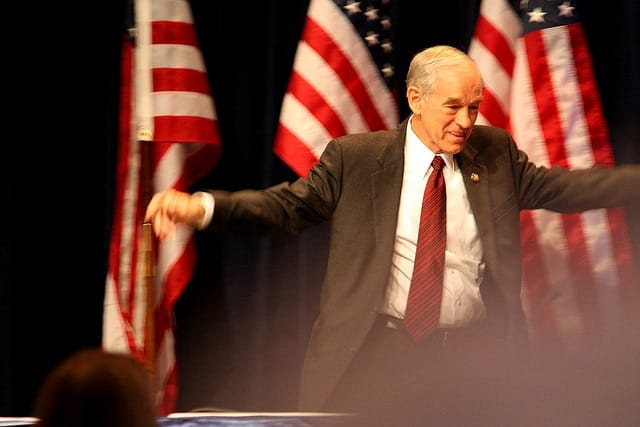Ron Paul's Secret Plan to Win The GOP Nomination


Ron Paul's strategy to win the Republican Party's presidential nomination to challenge President Obama for the White House in November is quietly proceeding as planned, and after major delegate wins in Colorado, Minnesota, and Iowa this weekend, the "Ron Paul Revolution" as Paul's supporters call it, has the Mitt Romney campaign and GOP establishment in a panic.
From the beginning, Dr. Ron Paul's campaign strategy drew many of its lessons from President Barack Obama's successful outsider bid for his own party's nomination in 2008: start early, learn and take advantage of the rules and party procedures in each state, outwork the competition, use superior organization and an army of devoted young followers, and appeal to a broad coalition of moderates, young people, liberals, low-income voters, and independent voters.
Back in 2008, despite Hillary Clinton's anointment by her party establishment, Barack Obama's reform candidacy outworked, out-organized, and out-planned the establishment candidate, securing the Democratic Party's nomination and ultimately leading to the White House in November. Today, despite another virtual media blackout, with Fox News asking "Where in the world is Ron Paul?" the answer seems to be: Quietly winning the Republican Party's nomination state by state, delegate by delegate. Ron Paul's campaign is speaking through action, not words. It is the mainstream media coverage, more than Paul's campaign, that seems to be conspicuously quiet.
Oddly enough, for news on Ron Paul's campaign, interested observers have had to look outside mainstream media sources here in the United States to foreign news sources like Russia Today, which reported Friday that while Newt Gingrich (who will drop from the primary sometime in the near future, leaving only Romney and Paul to fight it out) is $5 million in debt, Ron Paul's campaign is running strong with millions in funding and zero in debt for previous campaign expenses.
But is the money translating to results? After some recent big delegate wins for the Ron Paul campaign in caucus state conventions across the country, the answer seems to be: Yes. After this weekend, most of Colorado, Iowa, and Minnesota's delegates to the national convention are locked in, and Mitt Romney failed to secure half of them. If that trend continues, and Mitt Romney cannot secure the 1,144 delegates necessary to secure the Republican Party's nomination on the first ballot in Tampa, it will lead to a brokered convention, which is exactly what Ron Paul's campaign needs to win the nomination instead.
In Colorado, Romney pulled 13 delegates, but 13 other delegates will be voting for Ron Paul at the convention. Santorum, who has dropped from the race, secured 7 delegates, and the 3 at-large delegates will likely vote for Romney, putting his Colorado total at 16. In Iowa, Ron Paul's supporters swept into power over the weekend and essentially took over the entire state GOP. Sources close to the Ron Paul campaign are estimating that as many as 22 of the Hawkeye State's 28 delegates will be voting for Ron Paul at the national convention. On Monday night, MSNBC's Rachel Maddow blurted out, "I think Ron Paul just won Iowa." In Minnesota, Ron Paul won in a landslide, taking 20 of the 24 delegates that the state party's conventions locked in over the weekend.
If the trend continues, and a well-funded, highly-organized, and very energetic Ron Paul campaign continues to sweep up delegates (with a majority of the party's delegates still up for grabs in large states like California) there is a real and growing possibility that Mitt Romney will not secure enough delegates to win his party's nomination on the first ballot at the Republican Party convention in Tampa. If this happens, the convention will become a brokered convention and all bound delegates will be "unbound," allowed to change votes for whichever candidate they choose.
Although it is impossible to determine the actual number without official counts, Paul's campaign seems quietly self-assured that at this point, many of Mitt Romney's bound delegates will vote for Ron Paul and hand him the nomination, not because Paul thinks he can charm and persuade them in Tampa, but because the Paul campaign has already stacked each state's slate of delegates with his own supporters, who have been stealthily getting elected as delegates. There's no telling how many of Mitt Romney's currently bound delegates are actually covert Ron Paul supporters ready to turn on a dime after being unbound in a brokered convention and vote for Ron Paul.
And that is Ron Paul's secret plan to win the Republican Party's nomination.
And it looks like it might be working.



